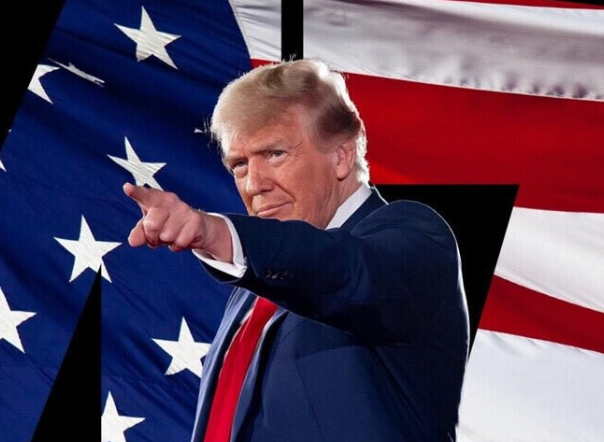Elon Musk Vs Trump:A major political storm is brewing in the U.S. as Elon Musk publicly opposes President Trump’s new tax and spending bill. Trump hits back, accusing Musk of surviving on government subsidies, prompting a sharp response from the Tesla CEO. Here’s everything you need to know about the bill, the clash, and the growing tension in Washington.
Elon Musk Vs Trump:Elon Musk Opposes Trump’s New Bill, Trump Says Musk Survives Only on Subsidies
The Republican-controlled Senate is grinding through a marathon session of amendment votes as it attempts to pass a sweeping 940-page tax and spending cut bill. The legislation, a centerpiece of President Donald Trump’s domestic agenda, aims to implement wide-ranging tax breaks, deep spending cuts, and provisions reflecting long-standing conservative priorities. These include boosted defense funding and increased resources for immigration enforcement and deportations.
Despite their numerical advantage, Republicans face significant obstacles. While the White House is urging unity and speed—hoping to place the bill on Trump’s desk ahead of Friday’s Independence Day celebrations—internal dissent and a flood of amendments are slowing the process. White House Press Secretary Caroline Levette called for Republican lawmakers to remain “tough and unified during the home stretch,” adding, “We are counting on them to get the job done.”
Democrats remain universally opposed to the bill. In an effort to delay or amend the legislation, they have introduced scores of amendments, each of which requires a floor vote. The Senate rules allow for an unlimited number of such amendments, leading to a drawn-out process with a final vote potentially delayed until early Tuesday morning.
The bill’s passage in the Senate would not mark the end of the legislative battle. Any changes to the bill’s text would send it back to the House of Representatives, where the right-wing Freedom Caucus has already threatened to pull its support if certain provisions are altered.
One of the most controversial aspects of the bill involves cuts to Medicaid, the public health insurance program that provides coverage to low-income Americans. Independent analysis shows that by 2034, nearly 12 million more Americans could become uninsured due to these changes and related reductions in Affordable Care Act funding. Nonpartisan studies have further concluded that the bill would lead to a historic redistribution of wealth, transferring significant financial resources from the poorest 10% of Americans to the wealthiest.
Public polling reflects widespread disapproval of the bill across a broad spectrum of voters, including various age, income, and demographic groups. Despite this, Republican leadership remains committed to delivering a legislative win for the Trump administration.
The bill would also make permanent the Trump-era tax cuts initially passed in 2017, which are currently set to expire in 2026. Should the bill fail, between 62% to 68% of Americans could see a tax increase starting in that year.
Several Republican senators, including Rand Paul and Thom Tillis, have expressed deep reservations, primarily over the bill’s impact on the deficit and its potential to undermine the Medicaid program. Their opposition has injected additional uncertainty into an already volatile vote count.
Adding a dramatic twist to the political saga, Tesla and SpaceX CEO Elon Musk has vocally opposed the bill. Musk, who had a public fallout with President Trump earlier this month, renewed his criticisms as Senate voting began. Posting on X, Musk slammed the bill as “insane” and threatened to form a new political party—dubbed the “American Party”—if it passes.
“The country needs an alternative to the Democrat-Republican uni-party so that the people actually have a voice,” Musk wrote. Accompanying the post was a graphic representation of national debt levels under both parties. “They just pretend to be two parties, but it’s a uni-party in reality,” he added.
Trump wasted no time in responding. In a scathing post of his own, the president wrote, “Elon Musk knew, long before he so strongly endorsed me for President, that I was strongly against the EV Mandate. It is ridiculous, and was always a major part of my campaign. Electric cars are fine, but not everyone should be forced to own one.”
The president went further, accusing Musk of benefiting from more federal subsidies “than any human being in history,” suggesting that without such support, Musk “would probably have to close up shop and head back home to South Africa. No more rocket launches, satellites, or electric car production, and our country would save a fortune.”
In a sharp rebuttal, Musk fired back on X: “I’m literally saying cut all my subsidies. Still will survive.” His post gained immediate traction, drawing attention to the broader debate over government subsidies and corporate dependence.
As the legislative clock ticks down and political tensions flare on both sides of the aisle—and beyond—it remains uncertain whether Trump’s “one big beautiful bill” will cross the finish line before fireworks light up the sky on Independence Day.
Disclaimer:
This article is based on multiple reports, official statements, and independent analyses available at the time of publishing. Legislative outcomes are subject to change as the Senate continues its voting process. Views expressed by public figures such as President Trump and Elon Musk are quoted directly and do not reflect the views of this publication. Public polling and nonpartisan policy assessments are cited from third-party sources. This content is for informational purposes and not intended as financial, political, or legal advice.

